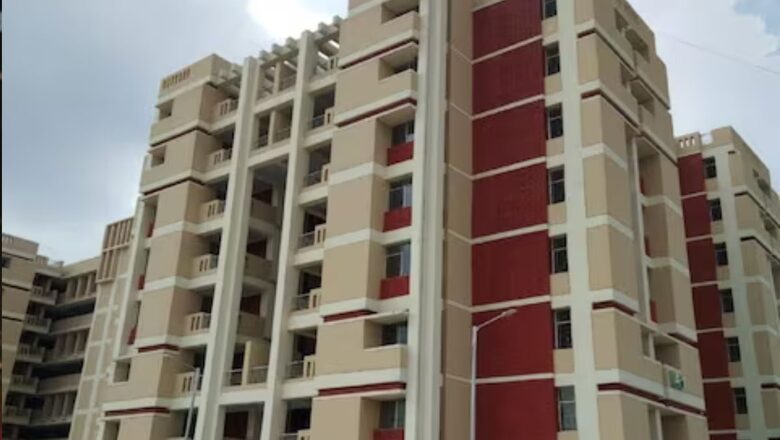
views
Budget 2024 Expectations: Real estate consultant Knight Frank India on Wednesday in a report said that sales of residential properties priced Rs 50 lakh and below fell to 97,983 units last year from 1,17,131 units in 2022. As a result, the share of affordable homes in total housing sales has come down to 30% from 37%.
The consultant attributed the fall in sales of affordable homes to subdued demand because of the combined impact of rising property prices, increased home loan rates, and the disproportionately adverse effects of the pandemic in this category.
On the other hand, JLL in its report found that the affordability for home purchases is expected to improve in 2024, based on the expectation of a 60-80 bps repo rate cut in 2023. This will keep buyers’ affordability within a very comfortable range and sustain the momentum in the market over the next year as well.
Amid various growth numbers, this is the time when the industry lists its expectations with the hope to be addressed in the Union Budget, which is scheduled to be presented on February 1st. The upcoming budget is going to be an interim one, which is presented when there’s not enough time for a full budget, usually due to upcoming elections or a government’s end of term. It bridges the gap until the new government presents a full budget.
The real estate industry invariably presents the Finance Ministry with a very ambitious wish list every year before the annual Union Budget.
Budget 2024 Expectations: Real Estate
Anuj Puri, the chairman of Anarock Group, said that in 2023, the residential real estate market experienced extraordinary growth, as new launches and home sales reached record highs. In 2023, sales of housing in the top seven cities reached an all-time high of about 4.77 lakh units, while sales of newly launched homes reached almost 4.46 lakh units.
Puri added that the real estate industry’s outlook for 2024 is currently positive. Still, the results of the upcoming general elections will also have a significant impact on the demand for and growth in residential real estate.
According to Puri, the below-elaborated themes remain key demands of the real estate sector of India;
Industry status for the housing sector and single-window clearance for housing projects are standard tasks and remain in place this year, as well.
Since the pace at which the issues that the real estate sector faces get resolved is generally quite slow, these expectations haven’t changed much – though they’re as pressing as ever. That said, we must have reasonable expectations for the interim budget, which will be unveiled before the general elections.
Maximum deduction for home loans (u/s 24)
It is necessary to increase Section 24 of the Income Tax Act’s Rs 2 lakh tax rebate on home loan interest rates to at least Rs 5 lakh. Doing so could stimulate a more robust housing market, particularly in the budget homes segment, which has seen a decline in demand since the pandemic.
Decisive boost for affordable housing
Given how badly the epidemic affected this segment’s target audience, affordable housing has been affected severely. Anarock Research finds that the previously much-touted budget homes category saw a decline in overall sales – to approximately 20% in 2023 from over 30% in 2022 and nearly 40% in the period before the pandemic.
Not surprisingly, this segment’s percentage of the total housing supply in the top 7 cities also fell to 18% in 2023 from nearly 40% in 2019.
Several interest stimulants that were offered to developers and consumers in this market over the years have expired in the last one to two years. It is imperative to revive and extend significant benefits, such as tax breaks, to encourage developers to construct more affordable housing and to make it possible for customers to acquire such homes.
Modify the qualifying standards for affordable housing to make more buyers eligible for the additional deductions.
The Ministry of Housing and Urban Poverty Alleviation defines affordable housing as being determined by the buyer’s income, the size of the property, and its price. Affordable housing is defined as a house or apartment valued up to Rs 45 lakh, with a carpet area of up to 90 square metres, located in non-metropolitan cities and villages, and 60 square metres in large cities.
The definition provided by the central bank, however, is based on the loans that banks provide to individuals so that they can purchase apartments or build houses.
The government needs to take a hard look at adjusting the qualifying cost of properties within cities’ affordable housing segment. Although the units’ defined size of 60 square metres is reasonable, the prices of up to Rs 45 lakh make them unaffordable to a huge share of the target clientele.
For example, a budget of below Rs 45 lakh is irrelevant for a metropolis like Mumbai; it should be increased to at least Rs 85 lakh. The budget should be raised to at least Rs 60–65 lakh for other large cities. With this price adjustment, more homes will be within the reach of more buyers, who will be able to take advantage of other advantages such as government subsidies, reduced GST rates at 1% without ITC, etc.
Release government land for affordable housing
Addressing the land shortage for this vital housing segment is also necessary. Certain lands that are owned by Indian Railways, Port Trusts, Department of Heavy Industries, etc., may be released by the corresponding government agencies. When this land is released at a low cost specifically for affordable housing, it will also significantly lower real estate prices overall.
Angad Bedi, MD – BCD Group, said, “One of the key expectations from the government is a robust policy impetus to boost the industry. This could be in the form of tax breaks, rebates, and allocation of funds, to create favorable conditions for both the builders and buyers. Another important move would be the focus on ‘affordability’. While the luxury segment grew exponentially, in the last one or two years the sales of affordable homes saw a decline. I hope this budget will re-look at the qualifying cost that impacted the affordable segment and will take steps to revive the segment.”
Bhavesh Kothari, founder, Property First, said, “While the expectations are certainly high, one of the key things that will turn favorable for the sector is tax rationalisation. Having said that, special attention is needed when it comes to capital tax gains. The reduction in the prevailing capital gain tax will not only create optimism among retail investors who are looking for simplification but will also incentivise more investments in residential real estate.”
“Besides, the sector is also eagerly waiting for policy incentives and re-introduction of schemes that favor the end users as well as investors, which in turn will generate more demand in the market.”
Budget 2024 Date: February 01, 2024



















Comments
0 comment